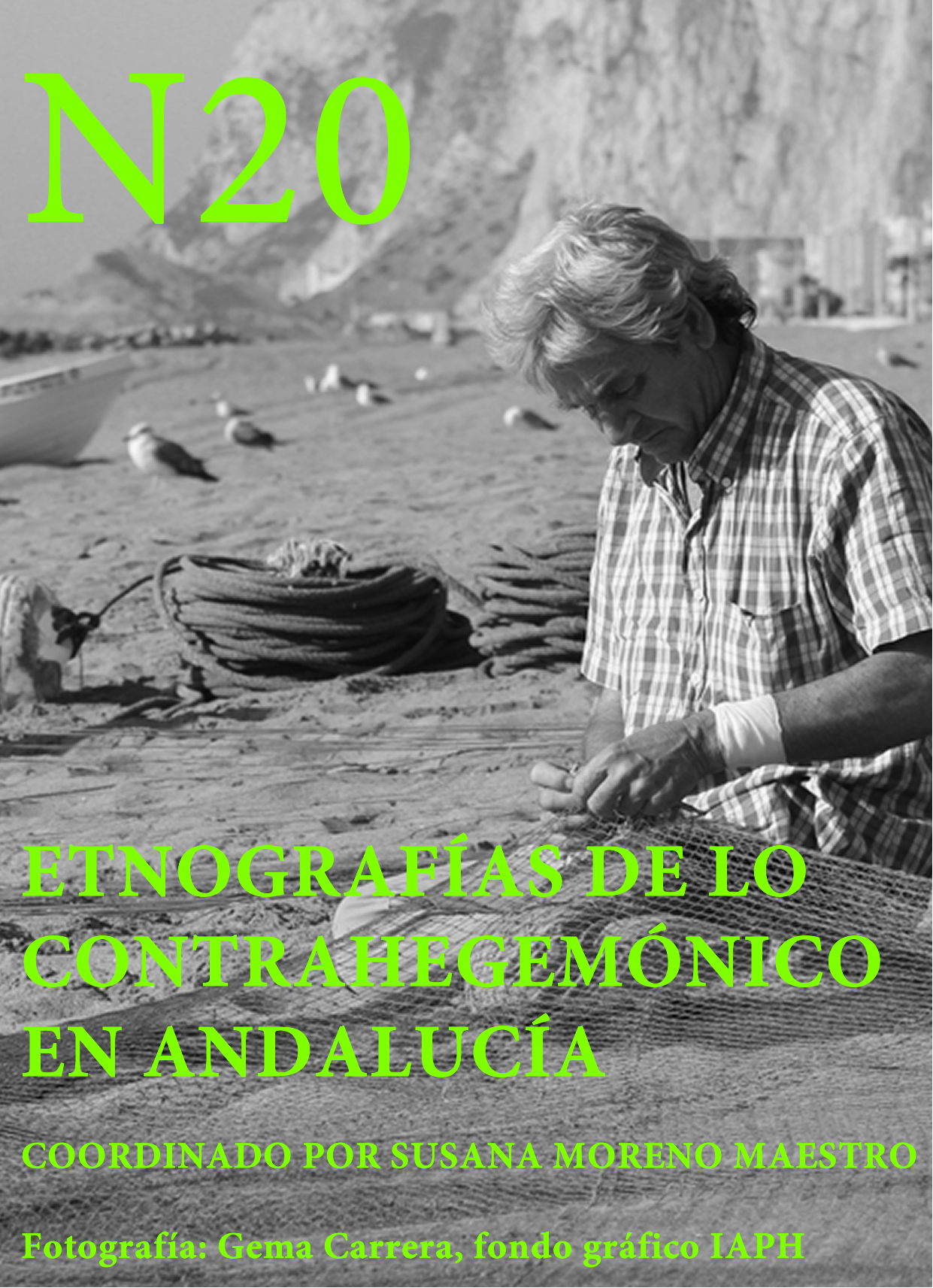Abstract
This research paper shows the results about the study of the empowerment processes in the public space of a group of young black and Afro-descendant women students of the University of Granada. The conducted study starts from anthropological and sociological theories that suppose alternative perspectives to the classical and hegemonic ways of seeing the world. From this basis, racialized female bodies are addressed through a qualitative methodology as agents in the social process, analysing and discussing their capacity for transformation from their position. Specifically, the self-definition of their sexuality and their structural awareness are suggested as two remarkable elements to understand how these processes occur. Finally, the hypothesis raised is compared with the conclusions drawn from a series of interviews and the relevance that these have within the study of the body is shown.
References
Ahmed, Sara (2002) “Racialized bodies”. En Evans, Mary y Lee, Ellie. (coords.). Real bodies: a sociological introduction. London: Palgrave, pp. 46-63.
Bourdieu, Pierre (1997) Razones prácticas. Una teoría de la acción. Barcelona: Anagrama.
Bourdieu, Pierre (1988) La distinción. Madrid: Taurus.
Collins, Patricia Hill (2000) Black Feminist Thought. New York: Routledge.
Corbetta, Piergiorgio (2007) Metodología y técnicas de investigación social. Mcgraw-hill.
Crenshaw, Kimberlé Williams (1994) “Mapping the margins”. En The public nature of private violence. pp. 93-118
Corbetta, Piergiorgio (1989) “Demarginalizing the Intersection of Race and Sex: Black Feminist Critique of Antidiscrimination Doctrine, Feminist Theory and Antiracist Politics”. University of Chicago Legal Forum, 139: 139-168.
Csordas, Thomas J. (1994) “Introduction: the body as representation and being-in-the-world”. En Csordas, Thomas J. (coord.). Embodiment and experience. The existential ground of culture and self.
Davis, Angela Y. (2005) Mujeres, raza y clase. Vol. 30. Ediciones Akal.
Esteban, Mari Luz (2004) Antropología del cuerpo. Género, itinerarios corporales, identidad y cambio. Barcelona: Bellaterra.
Foucault, Michel (2000) Vigilar y castigar: nacimiento de la prisión. Siglo XXI.
Foucault, Michel (1987) La historia de la sexualidad I. La voluntad de saber. Madrid: Siglo XXI.
Hanisch, Carol (1969) The personal is political.
Hooks, Bell (1992) Black looks: race and representation. Boston: South end Press.
King, Angela (2004) “The prisoner of gender: Foucault and the disciplining of the female body”. Journal of International Women's Studies, 5(2): 29-39.
Lugones, María (2011) “Hacia metodologías de la decolonialidad”. Conocimientos y prácticas políticas: reflexiones desde nuestras prácticas políticas de conocimiento situado, 2: 790-815.
Lugones, María (2008) “Colonialidad y género”. Tabula rasa (9): 73-101.
Mauss, Marcel (1971) “Técnicas y movimientos corporales”, Sociología y Antropología. Tecnos, Madrid (1ª ed. Francesa 1936), 335-356.
Merleau-Ponty, Maurice (2000). Fenomenología de la percepción. Barcelona: Península.
O’Neale, Sondra (1986) “Inhibiting midwives, usurping creators: the struggling emergence of Black women in American fiction”. En de Lauretis, Teresa (coord.) Feminist studies/critical studies. London: Palgrave Macmillan, pp.139-156.
Pateman, Carole (1996) “Críticas feministas a la dicotomía público/privado”. Perspectivas feministas en teoría política: 31-52.
Stephen, Kylie (2002) “Sexualized bodies”. En Evans, Mary y Lee, Ellie. (coords.). Real bodies: a sociological introduction. London: Palgrave, pp. 29-45.
Turner, Terence (1994) “Bodies and anti-bodies: flesh and fetish in contemporary social theory”. En Csordas, Thomas. J. (ed.). Embodiment and experience. The existential ground of culture and self. Cambridge: Cambridge University Press, pp. 27-47.
Vigoya, Mara Viveros (2016) “La interseccionalidad: una aproximación situada a la dominación”. Debate feminista, (52): 1-17.
Viveros, Mara (2000) “Dionisios negros. Estereotipos sexuales y orden racial en Colombia”. Mestizo yo: 95-130.
Wade, Peter; Giraldo, Fernando Urrea, y Vigoya, Mara Viveros (2008). “Debates contemporáneos sobre raza, etnicidad, género y sexualidad en las ciencias sociales”. En Raza, etnicidad y sexualidades: ciudadanía y multiculturalismo en América Latina. Universidad Nacional de Colombia: Centro de Estudios Sociales (CES), pp. 41-66.

This work is licensed under a Creative Commons Attribution-NonCommercial-ShareAlike 4.0 International License.
Copyright (c) 2021 La Universidad de Sevilla se reserva todos los derechos sobre el contenido de las revistas científicas tuteladas por su editorial. Los respectivos textos no pueden ser utilizados, distribuirse, comercializarse, reproducirse o transmitirse por ningún procedimiento informático, electrónico o mecánico con ánimo de lucro, directo o indirecto, ni tampoco incluirse en repositorios ajenos, sin permiso escrito de la Editorial Universidad de Sevilla. La distribución de estas obras derivadas se debe hacer con una licencia igual a la que regula la obra original y podrán ser usados y citados para fines científicos y referenciados con transformación para usos académicos, indicándose en todo caso la autoría y fuente, pudiendo para ello remitir al correspondiente enlace URL de Internet

